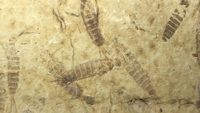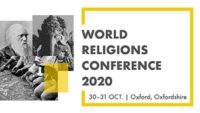Recently, some New York seminary students exhibited their unbiblical imaginations by idolatrously confessing their sins to potted plants. Sound silly? It is. Today in chapel, we confessed [our sins] to plants. Together, we held our grief, joy, regret, hope, guilt and sorrow in prayer; offering them to the beings who sustain us but whose gift we too often fail to honor. What do you confess to the p… More… …read more Source: icr.org
Can uniformitarianism be saved from the drastic incompleteness of the rock record under long-age assumptions? …read more Source: creation.com
01/18/20 “Fascinating article detailing how a baby develops from conception to birth. The sheer complexity involved in this process is mind boggling. Nonetheless atheists insist that all of this is a product of blind random chance processes – what foolishness!” Admin The very moment a male sperm cell penetrates a female egg cell, a new human life comes into being. This event, known as fertilization, forms a tiny, single-celled human distinct from his or her mother mother. This little life is called a zygote, meaning “yoked or joined together.”1 It’s the living seed that will be a newborn [More]
By Ken Ham Our popular Answers Bible Curriculum (ABC) is our four-year Sunday school curriculum that goes through the Bible chronologically. It features apologetics, an emphasis on biblical authority, and meaty teaching. Over 10,000 churches use it, and so do many homeschool families across the country who adapt it to fit their needs. And we’re excited to announce that ABC just won three Homeschool Family Favorite designations from the homeschool convention Teach Them Diligently! We placed number one in the following three categories: Favorite High School Bible, Worldview, or Character Curriculum Favorite Middle School Bible, Worldview, or Character Curriculum Favorite [More]
By Michael Egnor On this episode of ID The Future from the vault, host Ray Bohlin talks with Michael Egnor, a pediatric neurosurgeon and professor of neurosurgery at State University of New York Stony Brook about ways modern science validates the idea that the mind is not reducible to the brain. They delve into oddities of neuroscience that indicate that there is more going on in the brain than mere chemistry, and, in particular, walk through the seminal work of Adrian Owen on MRIs and what it reveals. Your browser does not support playing Audio, please upgrade your browser or [More]
By Ken Ham More and more scientists and researchers are shocked by the discovery of fossilized soft tissue (or, even more incredibly, unfossilized soft tissue!) in creatures thought to have died millions of years ago. These findings don’t fit the narrative most of us learned in school: a creature is slowly buried by sediments, gradually becoming fossilized. Instead, such fossils point to rapid, catastrophic burial. And a new find points, yet again, to catastrophic burial. Fossilization is a catastrophic process, as something has to be buried quickly. Researchers uncovered the fossils of tiny bug-like creatures that are buried in so-called [More]
By Dennis Rainey Many parents run from conference to conference looking for the secret to successful parenting. Sometimes they forget another risk: stale marriage. …read more Source: AIG Daily
By Dr. Alan White Are temperature changes a serious threat to our way of life? …read more Source: AIG Daily
How do you know when something has been engineered? One way to tell is to study the words used to describe its characteristic features. The Mt. Rushmore rock faces have different characteristics from the surrounding uncarved rock that don’t resemble portraits of American Presidents. Good scientific theories should be able to make predictions—including ones intended to explain biological phenomena. ICR previously… More… …read more Source: icr.org
Not a problem for the biblical timescale. …read more Source: creation.com
By Ken Ham The United Kingdom, like much of the Western world, is a melting pot of cultures, peoples, and religions. How can Christians follow Christ’s command to share the gospel with others who have very different (even very foreign) views to us? Get equipped to boldly share the gospel with those of many different religious backgrounds at our World Religions Conference, taking place at The Kings Centre in Oxford, Oxfordshire, October 30–31, 2020. This two-day event features teaching from a variety of experts, including Simon Turpin, the director of Answers in Genesis–UK, and Roger Patterson, one of our curriculum [More]
Deactivation of genes coding for limb morphology and loss of limbs is yet another case of devolution, not evolution. …read more Source: creation.com
By Ken Ham What was the leading cause of death in 2019 worldwide? If you asked someone on the street, they are likely to point to things like cancer, heart disease, malaria, HIV/AIDs, or gun violence. (Of course, the correct answer, from a spiritual perspective, is sin, but more on that later.) Well, did you know that the major physical cause of death is completely preventable? The lives of 42.4 million people were lost last year because of abortion. Over 42 million unborn children murdered worldwide. Let that sink in for a moment. That should break the heart of every [More]
Bonnethead sharks have short ‘carnivorous ancestry’ intestines, yet their stomachs have been found to contain up to 62% seagrass …read more Source: creation.com
By Harry F. Sanders, III Top stories of 2019 in biology: Plant communication, Human Y chromosome molecular clock, and remembering popular AiG speaker, Dr. Tommy Mitchell. …read more Source: AIG Daily
By Ken Ham Is your church planning on using our 2020 Answers Vacation Bible School, Mystery Island, this summer? If so, we’ve got an incredible opportunity for you! (And, if not, I encourage you to give it a try—our popular VBS is unique in the world, combining apologetics, biblical authority, and a strong emphasis on the gospel message.) Here at the Creation Museum, on January 25, 2020, we’re hosting a free workshop for Answers VBS users! It’s a wonderful day of learning, fellowship, and practical insight and guidance. This VBS workshop on January 25 allows you to get hands-on experience [More]
Does Scripture help us to understand this often asked question? …read more Source: creation.com
By Dr. Andrew A. Snelling How could neat uniform sedimentary rock layers be deposited during the Flood cataclysm with all the fast-moving waters? …read more Source: AIG Daily
By Ken Ham Sunday, January 19, 2020, is Sanctity of Life Sunday in the US. Many churches choose to set aside time to celebrate and teach on the sanctity of all human life, particularly that of the unborn. It’s a great time to share the message that we are fearfully and wonderfully made by God, knit together in our mother’s womb (Psalm 139:13–14). Here are some ideas on what to do this year to celebrate National Sanctity of Life Sunday at your church or in your home. Hold a showing of our recently updated DVD from anatomist Dr. David Menton, [More]
By Geoffrey Simmons On this episode of ID the Future, author and physician Geoffrey Simmons joins host Andrew McDiarmid in a wide-ranging discussion of his new book, Are We Here to Re-Create Ourselves: The Convergence of Designs. From the foresight needed in the design of eyes, to our stereoscopic and redundant hearing systems, to the mysteries of design in the nervous and circulatory systems, signs of engineered design are everywhere in the human body. And humans are mimicking some of those designs now through humanoid robots, which we’re making ever more like ourselves — in appearance, that is. Will robots [More]
By Ken Ham Did Moses really lead the children of Israel across the Red Sea? Did God miraculously part the waters of the sea and save them from their enemies? Or, as many liberal scholars would argue, is this account just a fabrication or an exaggerated retelling of a much less exciting historical event? Discover the truth in a brand-new two-part documentary in the Patterns of Evidence film series. Part 1 is coming to theaters across the United States for one night only, February 18,. This powerful and challenging film begins the investigation into the Red Sea crossing—where was it? [More]
Most Christians are familiar with the proclamation “God is love”, which the Apostle John wrote twice in his First Letter (1 John 4:8 & 16). Not quite so well known is John’s other pronouncement “God is light” (1 John 1:5), with light being a metaphor for God’s holiness and glory. Many Christians, if asked which attribute of God they consider to be the most important, might say God’s love. And no doubt the reason for this would be because they have experienced the expression of this love via God’s forgiveness of their sins because of Christ’s death and resurrection, and [More]
As biblical creationists, we can see how important the doctrine of creation is to the Bible’s ‘big story’ of Creation, Fall, Redemption, and Restoration. Many of us recall what it was like when the lights first ‘went on’ and we realized that Genesis could be trusted as an actual historical record. And especially when that revelation is fairly new to us, we can have great zeal when communicating that truth to others who have not yet had that ‘aha’ moment. At CMI, we love it when people get excited about creation, of course. Some of the most encouraging feedback we [More]
To encourage families to visit Ark Encounter, a campaign using animated giraffes encourages children ten and under to enjoy free admission during 2020. …read more Source: AIG Daily
This year the Institute for Creation Research celebrates 50 years of ministry! In this anniversary issue, we reflect on God’s faithfulness and provision over the last five decades. Plan to join us this October for our official celebration! Discover more in the January 2020 issue of Acts & Facts! …read more Source: icr.org
By Dr. Danny R. Faulkner What’s happening in the night sky with Venus, Mercury, Mars, Jupiter, Saturn, and the Perseid Meteor Shower in 2020. …read more Source: AIG Daily
By Ken Ham I love hymns. Many churches don’t sing them anymore or only sing a select handful. But the powerful, often theologically rich lyrics are a wonderful way of passing the truth of the gospel on to the next generation. I believe we always need to use the best of the past and the best of the new. Sadly, many churches don’t use the best of the past when it comes to music. That’s why I’m excited about an event coming to the Answers Center at the Ark Encounter on June 19, 2020—the Gospel Music Hymn Sing. Join …read [More]








































